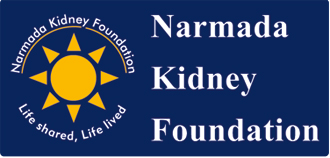
ROBOT ASSISTED KIDNEY TRANSPLANTATION
Hemodialysis, peritoneal dialysis, kidney transplant are the different modalities available for renal replacement therapy for patients suffering from end stage kidney disease. However, kidney transplantation remains the treatment of choice for ESRD as it leads to longer survival and superior quality of life. Kidney transplantation has traditionally been performed by open approach, but recently, a minimally invasive approach has been developed to do KT. We aim to discuss the current status of robot assisted kidney transplantation (RAKT) and describe our technique of RAKT.
KT has traditionally been performed by open surgery, but recently, a minimally invasive approach to KT has been evolved. In 2010 a pure laparoscopic approach was described by Rosales et al. and Modi et al., whereas more recently, a laparoscopic approach with robotic-assistance was described by Dr Giulianotti and Dr Boggi and group. Dr Giulanotti and group performed the first robot assisted kidney transplant (RAKT) in Chicago in 2010 and Dr. Boggi’s group performed the first RAKT in Europe in 2011.
Our group did Maharashtra’s first robotic assisted kidney transplant in July 2017 at Sir HN Reliance Foundation Hospital and Research center. We have now successfully completed 3 Robot assisted transplantations.
In general, larger wounds are associated with more wound related morbidity in terms of more pain, longer convalescence and postoperative recovery, and poor cosmesis. Also, significant retraction of the muscles is required for access to the iliac vessels, which might lead to bleeding and bruising of muscles leading to more pain. Compression of nerves by retractors can also lead to an injury. To overcome these problems, minimally invasive surgery including laparoscopic and robotic kidney transplantation were developed.
There is a strong rationale for utilizing minimally invasive surgery (MIS) in ESRD patients. MIS leads to smaller incision, lesser surgical infections, technical complications, blood loss and postoperative pain, shorter hospital stay and recovery period, and better cosmesis. These outcomes are important in the general surgical population but attain even greater significance in the fragile ESRD patients, where preventing these adverse perioperative outcomes not only leads to better convalescence in the short-term but also leads to improved graft and patient survival in the long term The da Vinci robotic surgical system has many advantages over pure laparoscopic surgery namely three-dimensional vision, control of the camera by surgeon, articulated wristed instruments with 7° of movements leading to ease of suturing, and elimination of tremors (an essential requirement for performing a good vascular anastomosis).
Many surgical groups have shown, one of the main the indication for RAKT was morbid obesity since higher body mass index (BMI) in kidney transplant recipients is associated with increased risk of surgical site infections which negatively impact graft survival.
In comparison to an open kidney transplantation surgery, a Robot assisted kidney transplantation offers the following advantages:
- The Robotic equipment gives a three dimension vision, camera control to the surgeon
- It gives ease and tremor free movements to the surgeon for suturing and hence precision in the finer details during the surgery.
- Better wound healing outcomes in obese patients
- Lesser incidence of wound infections and faster near pain free recovery from a major surgery
Conclusion
Transplant remains the best option for treatment of end stage kidney disease and if surgical complications of a surgery can be minimised in addition to patients comfort and smooth recovery, the scientific advance should be used to the optimum. Robotic assisted kidney transplantation is an emerging and feasible modality of minimally invasive surgery and it has definite advantages over traditional open kidney transplantation, especially in obese patients.
Written by : Dr. Jitendra Jagtap Consultant Urologist & Transplant Surgeon, Global Hospitals, Mumbai.
